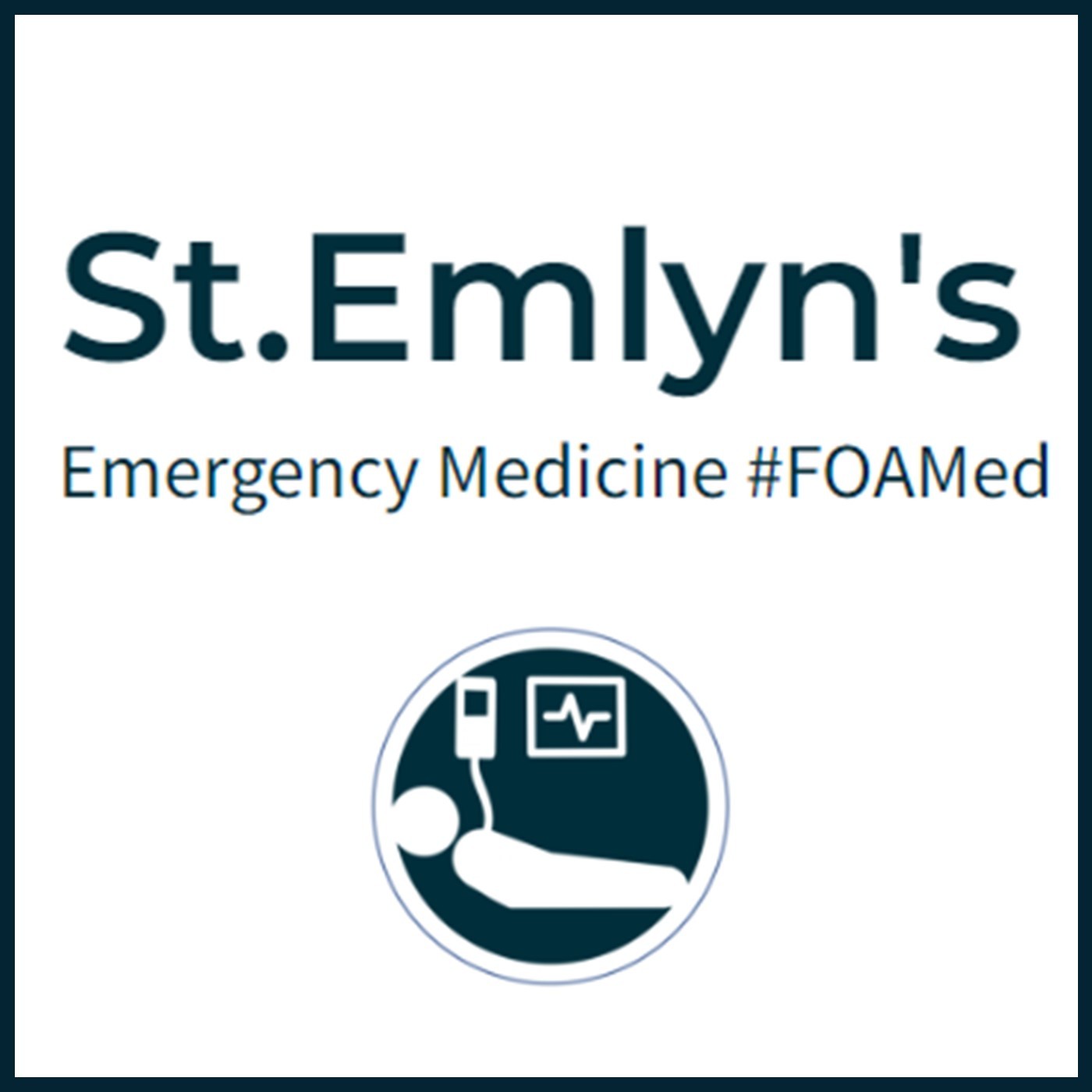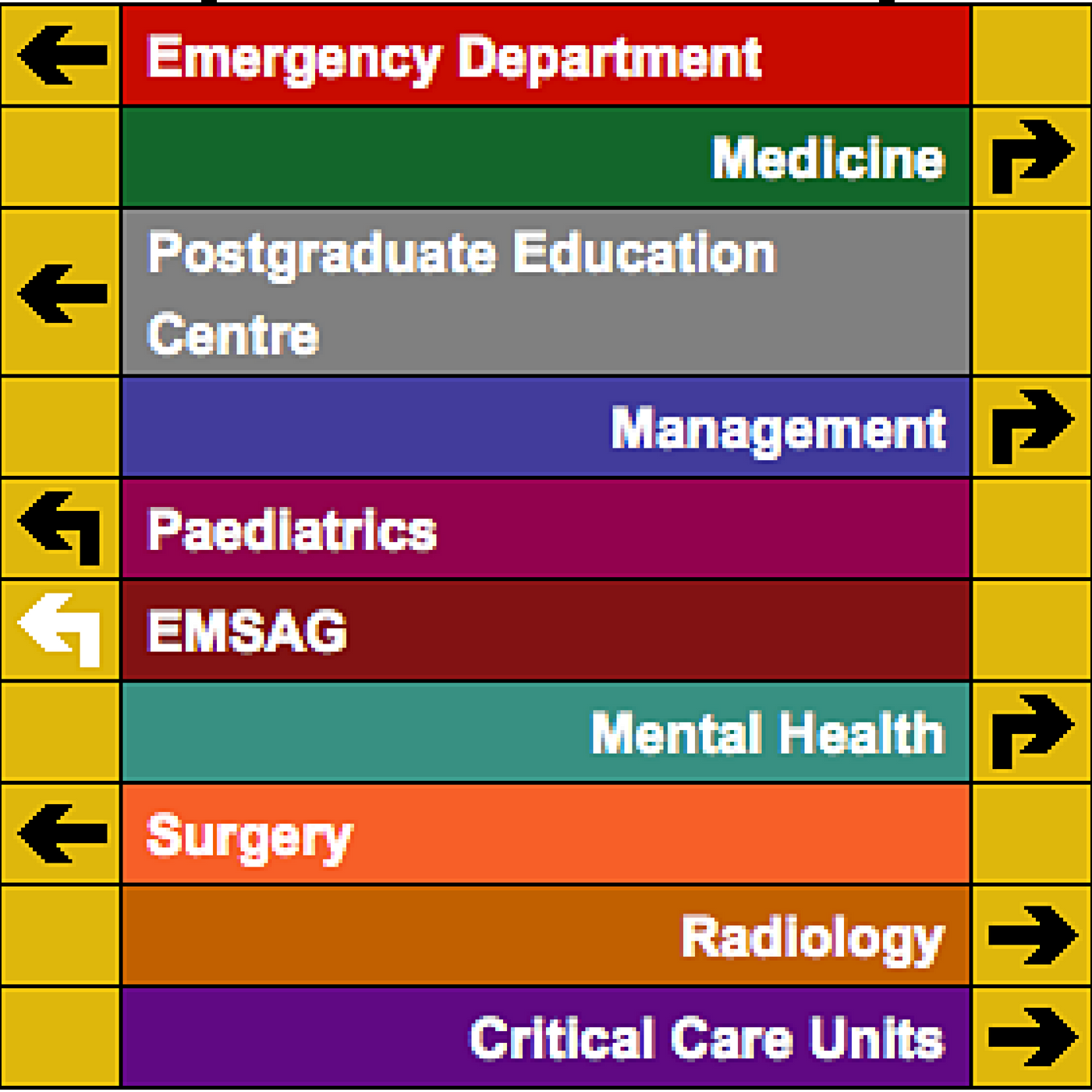
1.3M
Downloads
270
Episodes
A UK based Emergency Medicine podcast for anyone who works in emergency care. The St Emlyn ’s team are all passionate educators and clinicians who strive to bring you the best evidence based education. Our four pillars of learning are evidence-based medicine, clinical excellence, personal development and the philosophical overview of emergency care. We have a strong academic faculty and reputation for high quality education presented through multimedia platforms and articles. St Emlyn’s is a name given to a fictionalised emergency care system. This online clinical space is designed to allow clinical care to be discussed without compromising the safety or confidentiality of patients or clinicians.
Episodes

Friday Aug 17, 2018
Ep 115 - July 2018 Round Up
Friday Aug 17, 2018
Friday Aug 17, 2018
The Sintervenants Podcast: July Highlights - Game Theory, PTSD, Epinephrine Trials, and More
Hello and welcome to The Sintervenants Podcast. I'm Simon Kelly, and today I’m going to guide you through the exciting developments in July. While we all enjoy the summer weather, there’s a lot more to discuss beyond vacations. Here’s what’s been happening in the world of emergency medicine.
Game Theory in Emergency Medicine: Finite and Infinite Games
This month, we delve into a fascinating post by my colleague, Craig Ferguson, about game theory and its application in emergency medicine. This concept revolves around finite and infinite games, an idea rooted in game theory, which you might recognize from the film A Beautiful Mind. The book it’s based on is also highly recommended for those interested in deeper insights.
Understanding Finite and Infinite Games
Finite games, such as chess, have known rules, defined endpoints, and players aware of their roles. Conversely, infinite games, like a soccer league, continue indefinitely. In these games, the objective is to stay in the game, continually evolving and adapting until resources are exhausted or other external factors intervene.
Application in Healthcare
In healthcare, particularly emergency medicine, Craig highlights the challenges posed by infinite games. Emergency medicine is an infinite game with no definitive endpoint. The objective is to keep going, continually providing care without a final goal. However, health service management often imposes finite rules, such as performance targets and time-based metrics. These finite measurements can clash with the infinite nature of healthcare, creating challenges and unintended consequences.
For example, measuring patient flow and quality of care through finite metrics in an emergency department doesn’t account for the complex, non-linear nature of healthcare systems. Changes in one area can lead to unforeseen issues in another, complicating the overall performance and outcomes.
Craig’s post has shifted my perspective on my shifts, especially during challenging times. It’s not about meeting arbitrary targets but understanding the infinite game we’re playing. Recognizing this can alleviate some pressure and help focus on continuous improvement rather than finite measures.
Rusty Carroll's Insights on PTSD
Another compelling post this month comes from Rusty Carroll, a clinician who has openly shared his journey with PTSD. His series, "Keep Walking: PTSD and Me," provides a candid look at the early stages of PTSD and the challenges of maintaining a facade of normalcy while dealing with underlying trauma.
The Reality of PTSD in Emergency Medicine
Rusty’s experience highlights the temptation and necessity for many clinicians to keep going despite severe emotional and psychological strain. The work-play-sleep-repeat cycle can mask serious issues, preventing individuals from seeking the help they need. This series aims to help those who haven't experienced PTSD understand the lived experiences of those who have, offering insights into coping mechanisms and the importance of addressing mental health openly.
Emergency medicine professionals often face traumatic events, making Rusty’s story particularly relevant. Understanding these experiences can foster empathy and support within the community, encouraging those struggling to seek help without fear of stigma.
The Controversy Over Epinephrine in Cardiac Arrest
In July, we also reviewed a significant trial on the use of epinephrine in out-of-hospital cardiac arrest, published in the New England Journal of Medicine. This British-led trial by the paramedic two collaborators, spearheaded by Gavin Perkins, has been highly anticipated due to ongoing debates about the efficacy of epinephrine (commonly known as adrenaline in Manchester) in such cases.
Key Findings of the Trial
The randomized controlled trial involved over 8,000 participants and focused on patients who had not responded to initial defibrillation. The primary outcome measured was the survival rate at 30 days, showing a survival rate of 3.2% in the epinephrine group compared to 2.4% in the placebo group.
While this suggests a significant benefit in terms of survival, the secondary outcomes raise ethical questions. Severe impairment, measured by the modified ranking scale, was more common among survivors in the epinephrine group. This finding complicates the interpretation of the results, as it indicates that while more patients survive, many suffer from severe neurological impairment.
Ethical Implications
The ethical dilemma here is whether increasing survival rates justifies the higher incidence of severe impairment. This question extends beyond medical practice into the realm of medical ethics and societal values. As clinicians, our goal is neurologically intact survival, aligning with public preferences for quality of life over mere survival.
Despite the trial’s insights, it doesn’t provide a definitive answer. As practitioners, we must weigh these findings carefully, considering the broader implications for patient care and quality of life.
Upcoming Events and Updates
Teaching Power Course
We’re excited to announce that the Teaching Power Course in October is almost sold out. By the time this post goes live, it might already be fully booked, which is fantastic news. This course, held in Manchester, promises to be a valuable learning experience for all attendees.
Sintervenants Live Conference
Tickets are still available for the Sintervenants Live Conference on October 9th. We’ve designed this event to be both affordable and enriching, featuring an international faculty that you won’t find at any other one-day course in the UK. Don’t miss this opportunity to join us for an exciting day of learning and networking.
Practical Insights: Managing Paronychia
Lastly, I’d like to highlight an insightful post by Natalie May on the management of paronychia. While not as high-profile as other topics, paronychia is a common and painful condition that we don’t always manage effectively in the ED.
Effective Treatment Strategies
Natalie’s review examines the formation of paronychia and the best treatment options. Our previous small randomized control trial suggested that lifting the nail fold is more effective than incision and drainage. Natalie’s findings support this approach, advocating for less invasive methods to alleviate pain and promote healing.
Key tips include soaking the affected area and using appropriate tools to lift the nail fold gently. For more severe cases, inserting a small wick can aid healing by allowing drainage without creating a new wound. Natalie also advises on recognizing conditions that mimic paronychia, such as osteomyelitis or tendon injuries, ensuring comprehensive and accurate treatment.
This practical advice can significantly improve patient care in emergency settings, providing quick relief and better outcomes for those suffering from this common ailment.
Conclusion
July has been a month of significant insights and developments in emergency medicine. From exploring game theory and its application in healthcare to understanding the complexities of PTSD and navigating the ethical dilemmas of epinephrine use in cardiac arrest, we’ve covered a wide range of topics.
These discussions underscore the dynamic and challenging nature of our field. By continually learning and adapting, we can improve our practices, support our colleagues, and ultimately provide better care for our patients.
Thank you for joining us on The Sintervenants Podcast. Keep an eye on our blog and podcast for more updates and insights. If you’re attending our events in October, we look forward to seeing you there. Until then, stay engaged, stay informed, and keep making a difference in the world of emergency medicine.

Comments (0)
To leave or reply to comments, please download free Podbean or
No Comments
To leave or reply to comments,
please download free Podbean App.